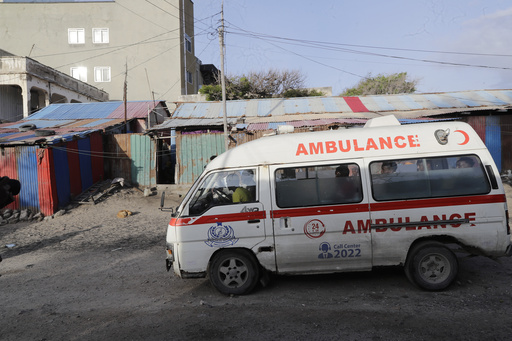
The United Nations Security Council unanimously approved on Thursday a resolution that allows the African Union to prolong its peacekeeping mission in Somalia until the end of the year. This resolution also calls for preparations for a successor mission, which is considered a crucial step in Somalia taking over its security operations.
The resolution, sponsored by Britain, permits the African Union to maintain a deployment of up to 12,626 uniformed personnel, including 1,040 police, for the transitional peacekeeping mission known as ATMIS until December 31. The United Nations political mission in Somalia is asked to continue offering logistical support to the African peacekeepers.
The Deputy British ambassador, James Kariuki, highlighted the significance of the resolution in Somalia’s security transition during the council meeting. He mentioned that ATMIS will be scaled down by the end of the year, with plans already endorsed by the African Union Peace and Security Council for a successor mission.
The Security Council praised a proposal made by the AU council on August 1 for an AU-led peace support operation to replace ATMIS. The resolution further calls on U.N. Secretary-General Antonio Guterres and the head of the AU Commission, in consultation with Somalia and key international stakeholders, to submit a report outlining the design for the successor mission by November 15.
Financing the new mission remains a critical issue, with the resolution requesting an update on the estimated costs and necessary resources by October 11 to ensure a smooth transition for Somalia’s security responsibilities.
In order to uphold the momentum of the security transition, the resolution encourages Somalia to continue advancing and executing its Security Sector Development Plan so the nation can ultimately take full ownership and responsibility for its security.
Somalia has been grappling with unrest since the ousting of dictator Mohamed Siad Barre in 1991, leading to civil war and subsequent challenges. Despite forming a transitional government in 2012, the country has faced extremist threats like al-Shabab and piracy activities.
The current resolution expresses deep concern over al-Shabab’s threat and condemns terrorist attacks in Somalia and neighboring countries, showcasing international solidarity in combating terrorism. Following an attack by al-Shabab that killed 37 individuals and wounded many at a Somali beach hotel on August 2, the resolution underscores the urgency of addressing such threats.
The United States Minister-Counselor, John Kelley, commended Somalia’s efforts in combating al-Shabab and emphasized that ATMIS will play a crucial role in diminishing the extremist threat until the end of the year. Kelley reinforced U.S. support for Somalia’s goal of taking on increased responsibility for its security at the earliest opportunity.
Somali Ambassador Abukar Osman welcomed the adoption of the resolution, conveying gratitude for the ongoing commitment from members in combatting al-Shabab and establishing lasting peace. He emphasized the need for technical assistance and logistical support to empower Somali forces to assume security responsibilities effectively, paving the way for a successful transition post-ATMIS in 2025.
Overall, the resolution signifies continued international support for Somalia in its pursuit of stability and the eventual handover of security responsibilities from peacekeeping forces to national security forces.
